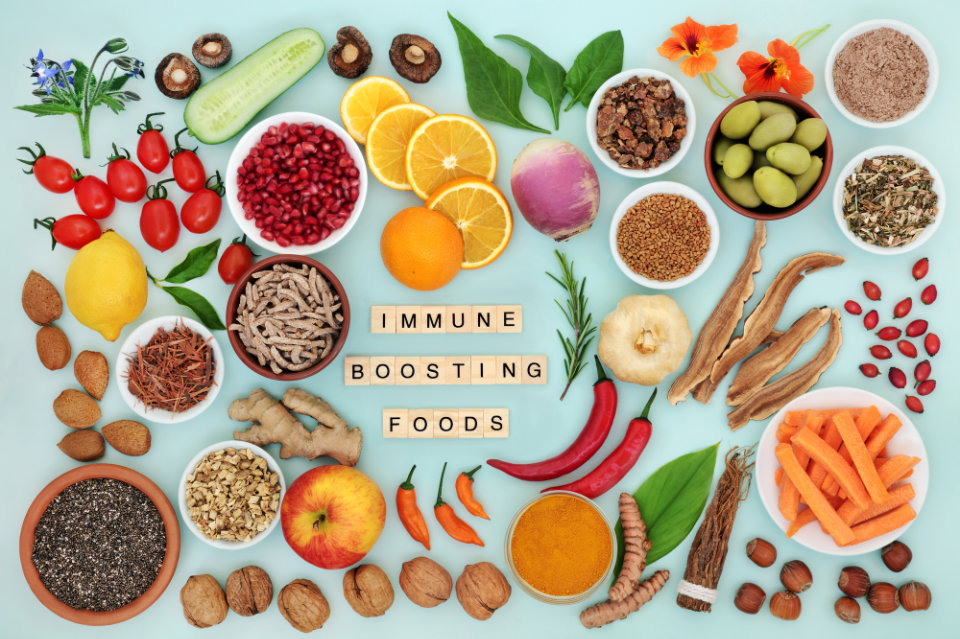Your immune system is your body’s first line of defence, and keeping it strong is essential for good health. One of the best ways to enhance immunity naturally is by focusing on gut health. Our digestive system plays a critical role in overall wellness, and recent studies have shown the importance of probiotics for immunity.
Probiotics, beneficial bacteria in certain foods and supplements, help support immune function by balancing gut flora and fighting harmful pathogens. This guide explores how a healthy gut boosts immunity, the role of probiotics, and simple ways to keep your digestive system in top shape.
Table of Contents
1. Understanding the Gut-Immune Connection
Your gut isn’t just for digestion; it’s also home to a large part of your immune system. Around 70% of your immune cells are located in your gut, making it essential for protecting your body from infections and illnesses.
A healthy gut microbiome, the community of bacteria and microorganisms in your digestive tract, helps maintain a balanced immune response. When the gut microbiome is out of balance, it can lead to inflammation and a weakened immune system. Probiotics play an important role here by introducing beneficial bacteria that support immune health, helping the body fend off harmful invaders.
2. What Are Probiotics, and How Do They Work?
Probiotics are live bacteria and yeasts that benefit your digestive system. They are often called “good” bacteria because they help keep your gut healthy by balancing out the “bad” bacteria that can cause infections or upset your digestion. These good bacteria work by producing substances that inhibit harmful bacteria, stimulating immune responses and enhancing the gut barrier to prevent pathogens from entering your bloodstream.
By consuming foods rich in probiotics, like yogurt, kefir, and fermented vegetables, or taking supplements, you’re giving your body the tools it needs to maintain a healthy microbiome supporting immune function.
3. Types of Probiotics and Their Benefits
Not all probiotics are the same; there are different types, each offering unique health benefits. The two main types are Lactobacillus and Bifidobacterium, which you’ll commonly find in supplements and probiotic-rich foods. Lactobacillus helps with digestion and boosts immunity by producing lactic acid, which fights off harmful bacteria.
Bifidobacterium is known for supporting the gut barrier, making it harder for pathogens to enter the bloodstream. Including various probiotics in your diet ensures a diverse microbiome better equipped to support immunity, manage inflammation, and maintain overall health.
4. How Probiotics Boost Immunity
When you introduce probiotics to your gut, they interact with the immune cells in your intestines, strengthening the body’s natural defence systems. Probiotics have been found to enhance the production of antibody proteins that identify and neutralise harmful bacteria and viruses.
They also increase the activity of immune cells like macrophages and natural killer cells, which help to detect and destroy pathogens. Regular intake of probiotics makes the immune system more efficient at recognising and eliminating threats, making it an effective way to boost immunity naturally.

5. Best Foods for Gut Health and Immunity
One of the easiest ways to get more probiotics in your diet is through food. Fermented foods are an excellent source of natural probiotics, which can contribute to a healthy immune system. Some top choices include:
- Yogurt: Contains live cultures of Lactobacillus, helping to balance gut bacteria and support digestion.
- Kefir: A fermented milk drink rich in diverse probiotics, supporting gut health and immune function.
- Sauerkraut and Kimchi: Fermented cabbage dishes packed with beneficial bacteria and vitamins that boost immunity.
- Miso and Tempeh: Fermented soybean products add variety to your diet and provide plant-based protein and probiotics.
These foods not only support gut health but also introduce a range of vitamins and minerals, like vitamin C and zinc, that are essential for a strong immune system.
6. Probiotic Supplements: Are They Right for You?
Supplements can be a convenient option if you find it challenging to get enough probiotics from food. Probiotic supplements are available in different strains and strengths, allowing you to choose one that best fits your needs. Look for high-quality supplements with live cultures and various strains to maximise benefits.
Many people find supplements helpful during stress or when their immune system needs extra support. However, it’s essential to consult with a healthcare professional before starting any supplement regimen, as they can help determine the best type and dosage for you.
7. Additional Tips for a Healthy Gut and Strong Immunity
In addition to probiotics, there are several lifestyle changes you can make to improve gut health and boost immunity:
- Eat a High-Fiber Diet: Fibre feeds the good bacteria in your gut, helping them thrive and supporting digestion.
- Stay Hydrated: Drinking plenty of water aids digestion and maintains a healthy gut lining, preventing harmful bacteria from entering the bloodstream.
- Manage Stress: Chronic stress can harm your gut microbiome, so practising relaxation techniques like meditation or yoga can improve gut health.
- Get Regular Exercise: Physical activity has been shown to impact the gut microbiome, improving immune function positively.
These habits and regular probiotic intake create a well-rounded approach to maintaining a strong immune system.
Take Care of Your Gut Health
In conclusion, focusing on gut health is one of the most effective ways to boost immunity naturally. By incorporating probiotics for immunity into your routine through foods or supplements, you support the balance of beneficial bacteria in your gut, which is essential for a strong immune response.
Combined with a healthy lifestyle, these natural defence boosters can help you maintain resilience against infections and improve your overall wellness. Embracing gut health as a part of your daily routine enhances immunity and contributes to better digestion, improved mood, and long-term health.





